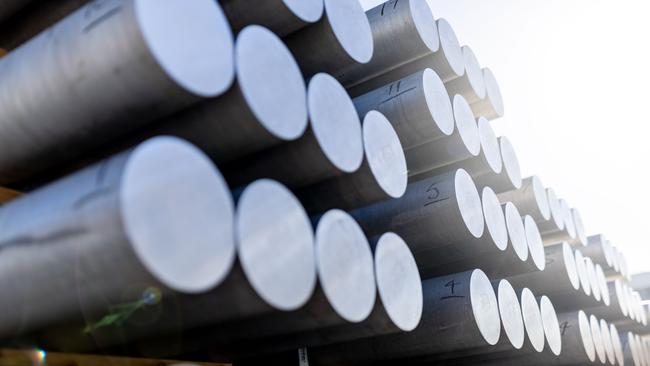
Market sources are describing Saint-Gobain’s $4.3bn offer for CSR as a full price after the two parties were said to have been in negotiations for almost a year.
The buyout, subject to due diligence by the French group, calls into question what happens to CSR’s 36 per cent ownership of the Tomago aluminium smelter in NSW, and whether asset sales flow from the deal, such as a divestment of CSR’s PGH Bricks and Pavers or Monier Roofing units, given that they would not be seen as core to Saint-Gobain.
While the $9 a share offer, which was a 13.2 per cent premium to its last traded price of $7.95 and a 33 per cent premium before speculation emerged a deal was afoot, is subject to due diligence, most believe it will go through because the pair are on friendly terms and already have a product sharing relationship. The price equates to about 12 times earnings before interest, tax, depreciation and amortisation.
Other than building products, where CSR operates in insulation, fibre cement, lightweight concrete blocks and roof tiles, accounting for 72 per cent of annual revenue, it also has a $1.5bn land bank.
Morgan Stanley points out in a research note that partners Rio Tinto and Norsk Hydro have pre-emption rights in an exit of the Tomago aluminium smelter, raising the possibility of part funding of any potential deal.
Analysts say Rio would likely be the buyer of CSR’s share at the right price, signalling it remains committed to aluminium.
Saint-Gobain is a company with a €34bn market value, and the CSR deal would be considered a rounding error.
On this basis, it may be happy to continue owning the asset.
When Saint-Gobain first started looking at CSR, analysts pointed out that a sale of Jeld-Wen’s Australian and New Zealand building materials operations for $US450m valued it at 6.7 times EBITDA.
When the same multiple was applied to CSR’s building products division it indicated a value of $2.3bn, including debt.
CSR at the time has a market value of $2.49bn, suggesting that any buyer would be gaining CSR’s land for nothing.
DataRoom reported at the time that the two most logical buyers were Fletcher Building and Saint-Gobain.
Saint-Gobain weighed an acquisition of Boral in the past, but walked away.
CSR generates about half of its building products earnings from Gyprock plasterboard and the remainder from bricks, insulation and the concrete product Hebel. It has signalled it expected lower returns in the upcoming years, with lower volumes amid a slowing economy and high fixed costs.
Asbestos liabilities has always been seen as an issue for the group, but can be worked around.
A broader dilemma is that with CRH buying Adbri, Seven acquiring Boral and CSR soon to be gone it leaves Fletcher Building, James Hardie and GWA as more or less the only building materials companies listed on the ASX.




To join the conversation, please log in. Don't have an account? Register
Join the conversation, you are commenting as Logout